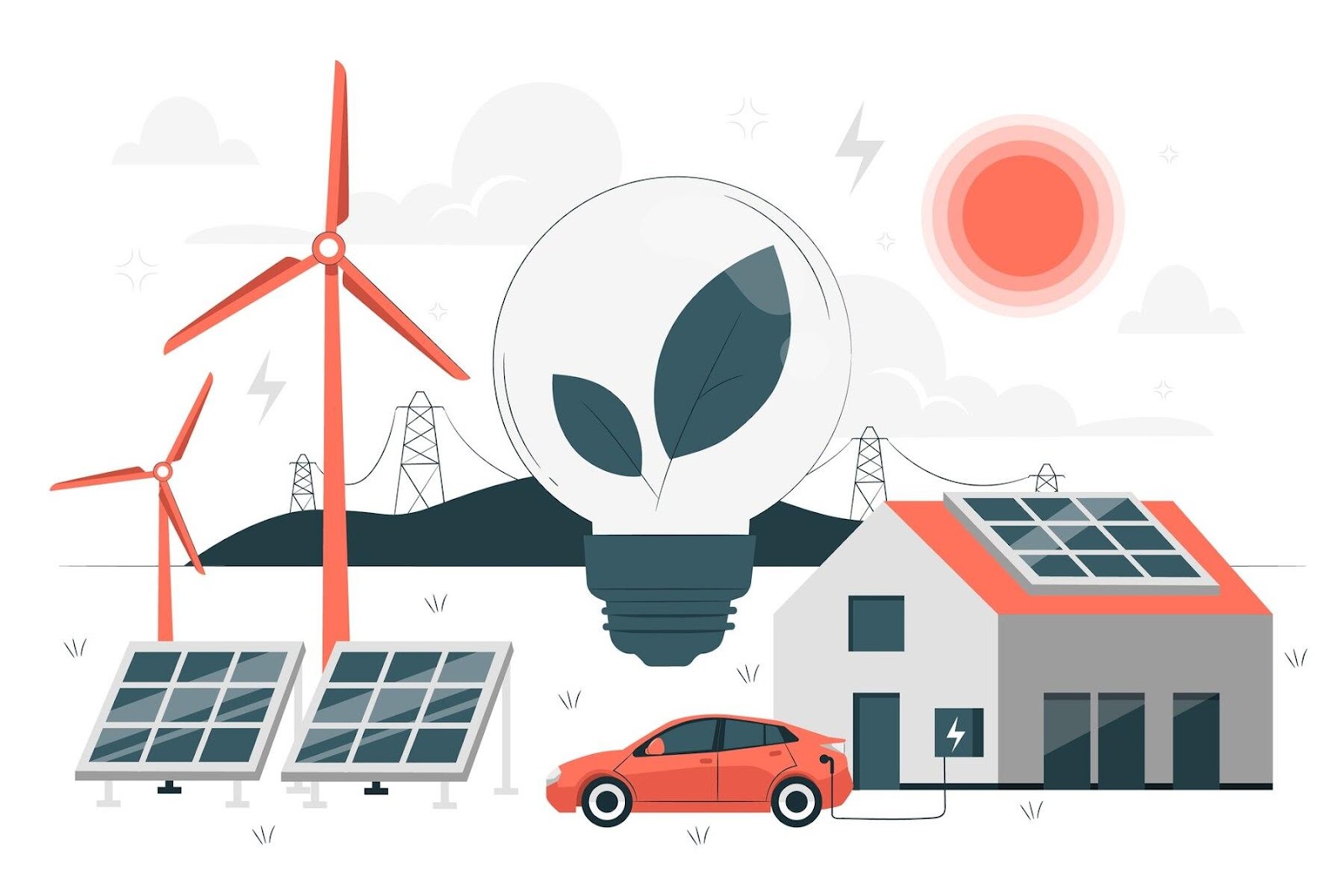"Green" energy continues to gain popularity, attracting the attention of investors worldwide. However, with the growing interest in this sector, the number of fraudulent schemes related to fake investment offers in this sector has increased. There are various fraud methods, and recognizing them requires vigilance.
Fraud in the green energy sector is a financial threat that can affect both individual investors and large investment groups. The main goal of such schemes is to attract funds under the pretext of creating environmentally friendly projects. These projects often promise high returns with minimal risks.
Environmental values are generally used by fraudsters as a "magic button" to mask their dishonesty.
False Investments in Renewable Energy
False investments in renewable energy sources often promise returns exceeding the real market sizes. Investors may encounter offers that look attractive but fundamentally have no real basis.
To avoid falling into such traps, it is necessary to critically evaluate projects offering too high a level of returns. If an offer sounds too good to be true, it is likely a scam.
Solar Panel Scams
Specialists like to talk about the "affordability" of solar energy, and fraudsters exploit this by offering non-existent products and services. Most of these schemes involve upfront payments for installation, where investors lose money without receiving the desired services or products. Often, contracts are signed with unfavorable terms, and victims find themselves unable to recover their money.
To protect against such scams, it is important to conduct thorough checks of companies. Ensure licenses and certificates are in place. Check reviews and ratings on independent platforms. If you are offered a deal with prepayment, it should raise suspicions.

Fraud in Eco-Projects and Fake Renewable Energy Funds
Eco-projects, especially in recent years, attract a lot of attention from both private investors and large funds. For example, there are many programs promising forest restoration or water body cleaning in exchange for investments. Such offers may look attractive, especially if supported by fake documents and photos. However, these schemes usually have no real outcome, and the money simply disappears.
Fake funds may offer to invest in unusual projects or innovative startups, whose management actually has no active team or normal business model.
When analyzing investment funds, it is important to pay attention to transparency. Ensure the fund is registered and has licenses for asset management. Check its financial reports to assess potential risks and returns.

How to Verify Energy Investments
Before investing in any project, it is best to conduct a comprehensive check. This should include the following steps:
- Company check.
- Financial reports.
- Licenses and certificates.
- Reviews.
- Contract terms.
The results of the conducted check should help you assess the level of risk before investing. It is important to always pay attention to details and not rush into making a decision.

Fake Projects in Renewable Energy
Fake projects related to renewable energy sources often exploit investors' interest and trust in "green" technologies. They may offer alternative energy sources, such as biomass or wind, promising significant benefits. Typically, such fraudulent schemes do not provide any concrete data on the real prospects of the project.
If the information about the project is spread only through intrusive advertising or social networks without clear and transparent information, it is likely to be a scam.

Fraud with Power Plants
Often, representatives of various companies approach investors with offers to participate in "real" projects for the construction or management of power plants. Clients may receive tempting promises of high returns and stable payments, but in most cases, such projects turn out to be fake. The power plants in question either do not exist or are at a stage that requires unjustified large investments. To evaluate such schemes, a critical approach must be used, and information about the enterprise must be checked. Ensure the project has all necessary licenses and meets quality standards. Review the main facilities already implemented by the company and the investment return timelines.
Environmental Investment Scams
Environmental investment scams align with the general trend towards sustainable development and climate change. Scammers understand that this sector is becoming increasingly attractive for investments and use such sentiments for their illegal schemes.
Usually, scams end with deceiving people who believe they are supporting a noble mission, but in reality, their money ends up in the pockets of fraudsters. Fraudsters offer investments in environmental projects, such as land reclamation, ecosystem restoration, and so on.
To avoid falling into such traps, it is important to check companies and understand how real projects in this field function. Remember that serious and significant changes require time and resources.

Fake Renewable Energy Companies
Fake companies in the renewable energy sector continue to appear on the market, trying to exploit the lack of awareness among investors. Creating fake websites with attention-grabbing presentations, as well as using catchy slogans and stories, is a common practice among fraudsters.
It is important to remember that registered companies should have a clear legal basis and active operations. As soon as you encounter an investment offer, check all available details about the company.
Use all available tools and resources for verification.
Conclusion
Every potential investor should approach project selection responsibly and critically, conducting the necessary checks and gathering as much information as possible.
Remember that easy money almost always turns out to be a scam. High profit can hide fraudulent schemes, and the environmental focus does not always guarantee reliability.
